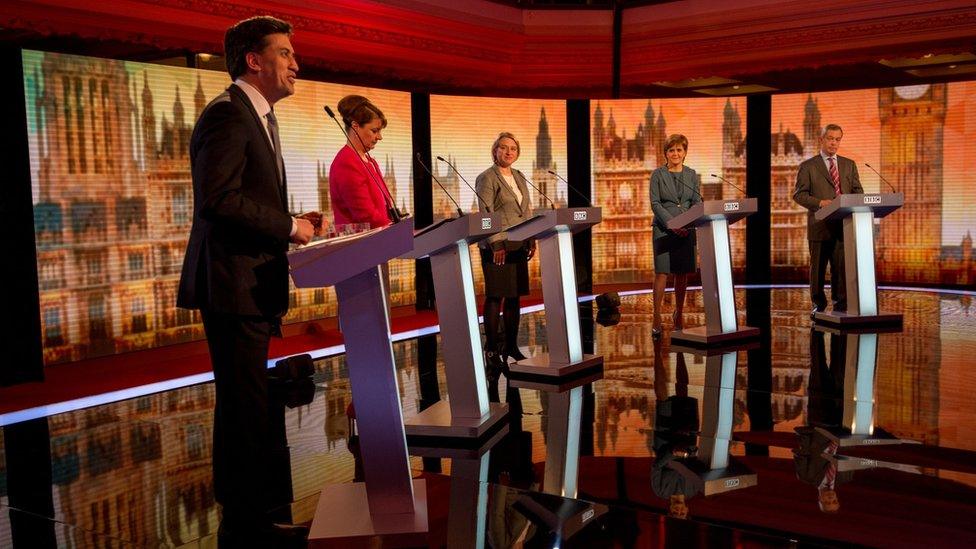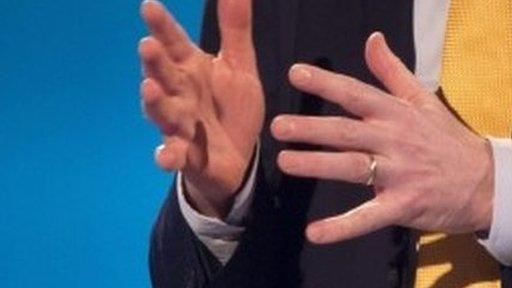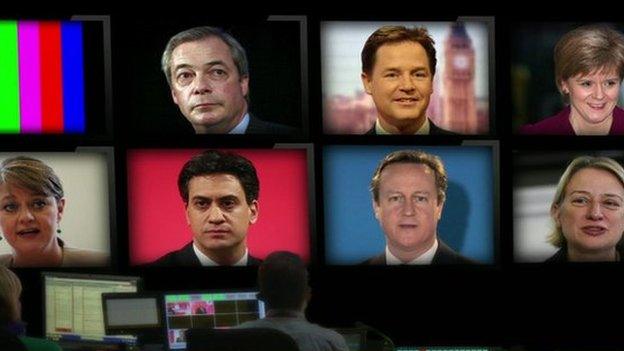General election TV debates had 'crucial role'
- Published

The televised debates that took place before the general election performed a "crucially important civic role", according to a new study.
Leeds University researchers said the events influenced first-time voters, younger voters and those who claimed they were not interested in politics.
They were also rated higher than newspapers and social media for helping people understand party policies.
Party leaders took part in four debates and Q&As after drawn-out negotiations.
According to the Democracy on Demand study, external, the programmes were successful in "reaching sections of the population least likely to be touched by the rest of the campaign".
'Default assumption'
More than half of people who said they were "not very" or "not at all" interested in politics said they planned to watch the first debate, on ITV, it said.
Over 30% of people who watched the debate said it made them "more interested in the election campaign", 70% of viewers said they now knew more about what the party leaders were like, and 60% felt they knew more about the policies being put forward.
Younger and first-time voters reacted more positively than "their more jaded elders", it said.
The debates were cited as the best way to compare the leaders' abilities to run the country, and were second after TV news for learning about the parties' policies.
Among undecided voters, they were cited ahead of TV news, interviews, newspapers and social media for helping people make up their minds.
The researchers carried out surveys of 2,000 people at the start of the campaign and after three of the programmes: ITV's seven-leader debate, the BBC's opposition leaders' debate which did not include David Cameron and Nick Clegg, and a Question Time show in which the PM, Ed Miliband and Mr Clegg were grilled separately. A fifth survey was carried out after polling day.
Osborne challenged
Professor Stephen Coleman, who led the research team, said: "We found that many voters feel they have a right to see the party leaders debate on television - the default assumption should now be that debates happen.
"Debates should become part of the fabric of major political events."
Chancellor George Osborne was challenged to support the debates at the next general election as he deputised for Mr Cameron at Prime Minister's Questions.
He said the issue was decided by discussions between political parties and broadcasters, adding he felt the PM had done well last time around.
Relive some of the highlights of the clashes below:
A look back at the main arguments during the leaders' debate
Highlights of the BBC election debate in two minutes
BBC Question Time highlights as leaders face questions
Extended highlights as David Cameron and Ed Miliband take questions
- Published3 April 2015

- Published21 March 2015
